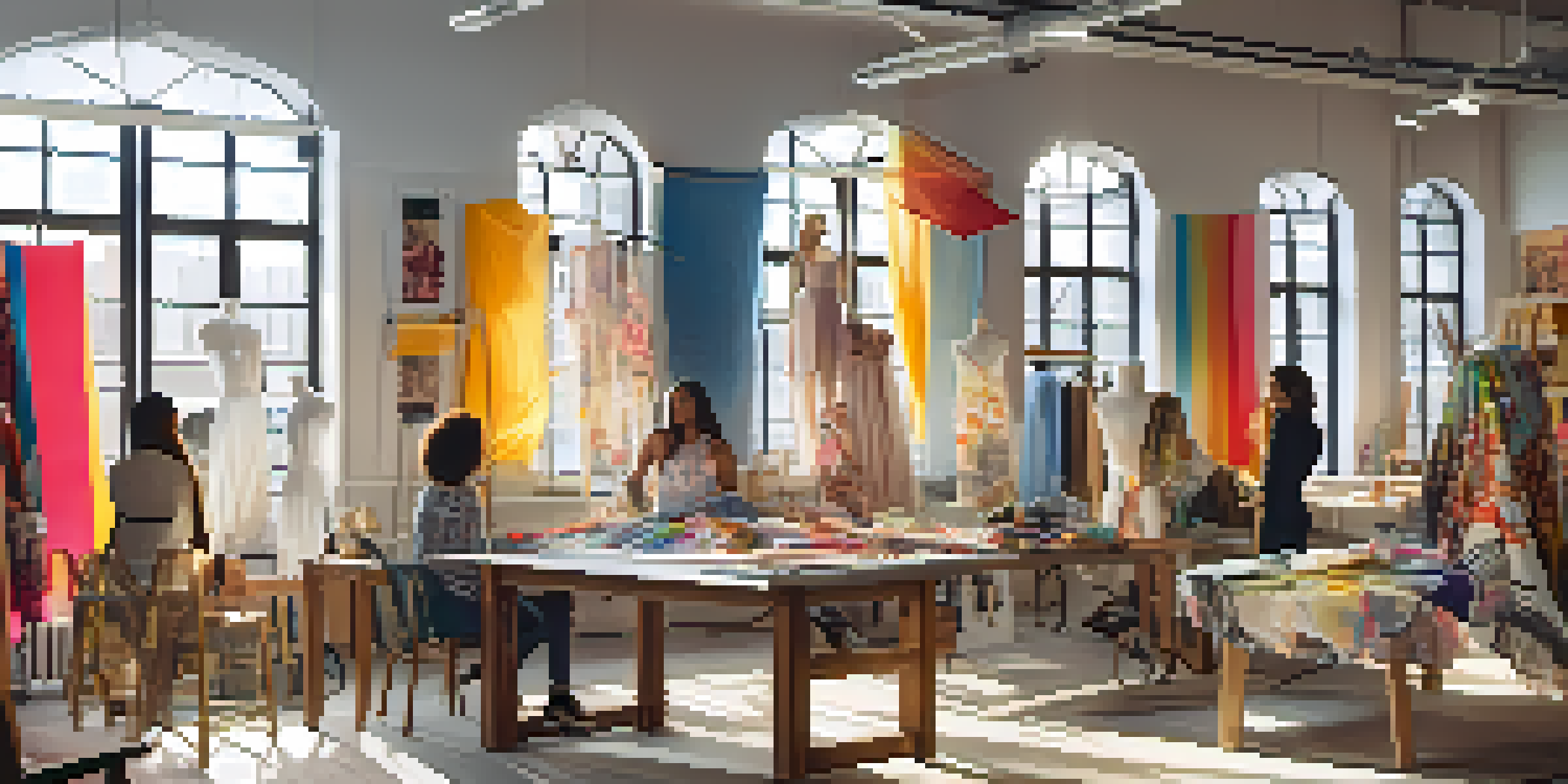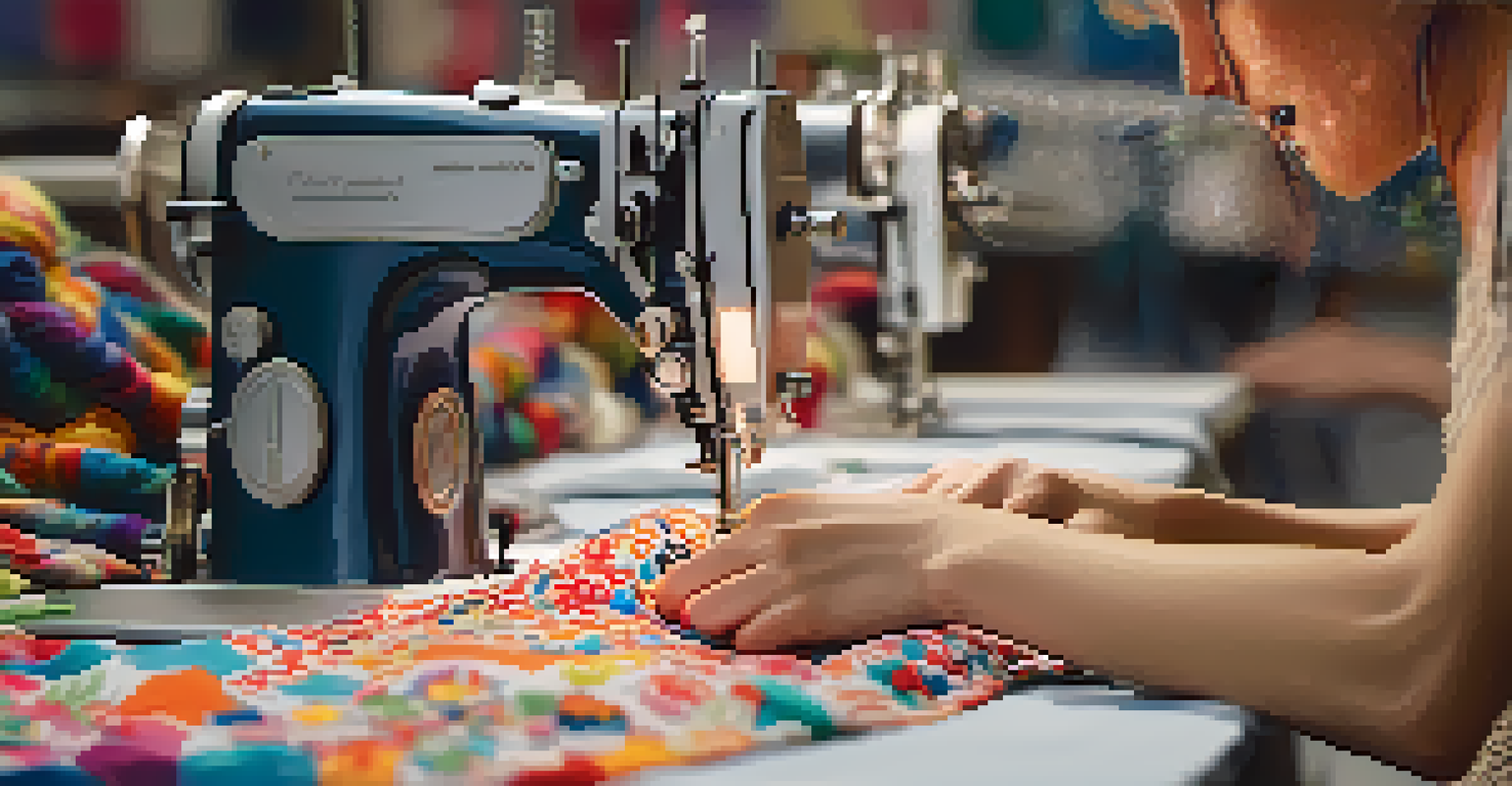How Internships Shape Fashion Careers and Education

Understanding the Importance of Internships in Fashion
Internships are a vital stepping stone for aspiring fashion professionals. They provide hands-on experience that complements academic learning, allowing students to apply theories in real-world situations. In fashion, where trends and technologies change rapidly, staying relevant through practical exposure is essential.
Internship experience is the best way to make the leap from education to industry.
Moreover, internships help students build a professional network that can be invaluable later in their careers. By interacting with industry experts, interns can gain insights into the nuances of the fashion world, from design processes to marketing strategies. This networking can lead to job opportunities and mentorships that might not be accessible otherwise.
Finally, internships often serve as a testing ground for students to discover their specific interests within the vast realm of fashion. Whether it's styling, merchandising, or production, these experiences help shape career paths and inform future educational choices.
Bridging the Gap Between Education and Industry
One of the most significant benefits of internships is how they bridge the gap between academic learning and industry expectations. Fashion programs often provide theoretical knowledge, but internships allow students to understand the practical applications of what they've learned. This experience is crucial when transitioning from student to professional.

Internships also expose students to the fast-paced environment of the fashion industry, which can be very different from the classroom. Tasks like meeting tight deadlines, collaborating with teams, and adapting to feedback are all part of the internship experience. This helps students develop skills that are often not covered in traditional curricula.
Internships Build Real-World Skills
Internships provide hands-on experience that enhances both technical and soft skills, preparing students for successful careers in fashion.
Additionally, many fashion schools have started to emphasize the importance of internships in their programs, encouraging students to seek out these opportunities. This trend reflects a growing recognition of the value of experiential learning in preparing students for successful careers.
Building Essential Skills Through Internships
Internships in the fashion industry are designed to help students develop essential skills that are critical for career success. From technical skills like sewing and pattern-making to soft skills like communication and teamwork, interns have the chance to hone their abilities in a real-world context. This combination of skills is invaluable when applying for jobs after graduation.
Networking is not about just connecting people. It's about connecting people with people, people with ideas, and people with opportunities.
Moreover, internships often require interns to take on various roles, allowing them to gain a well-rounded understanding of the fashion business. For instance, a student might start in design but later assist in marketing or merchandising, broadening their skill set and making them more marketable to future employers.
This versatility is especially important in the fashion industry, where roles can be fluid and multi-disciplinary. Interns who can showcase a range of skills are often more attractive to employers looking for adaptable talent.
Gaining Confidence and Professionalism
One of the often-overlooked benefits of internships is the boost in confidence they provide. Stepping into a professional environment for the first time can be intimidating, but internships help students acclimate to the workplace. Through positive experiences and constructive feedback, interns learn to trust their instincts and abilities.
Additionally, working alongside experienced professionals fosters a sense of professionalism that is crucial in fashion. Interns learn how to present themselves, communicate effectively, and navigate workplace dynamics. These skills are not only essential for securing a job but also for thriving in a competitive industry.
Networking Opens Career Doors
Internships create valuable networking opportunities that can lead to job offers and mentorship in the competitive fashion industry.
The confidence gained from completing an internship can also influence other areas of life. It empowers students to take risks, seek out new opportunities, and view challenges as stepping stones rather than obstacles.
Enhancing Resumes and Job Prospects
Internships serve as a significant addition to a resume, showcasing practical experience to potential employers. In the competitive world of fashion, having real-world experience can set candidates apart from their peers. Employers often look for candidates who have not only academic qualifications but also relevant industry experience.
When applying for jobs, interns can highlight their specific responsibilities and accomplishments during their internships. This not only demonstrates their skills but also reflects their dedication to the field. Sharing tangible outcomes, like successful projects or positive feedback, can make a strong impression.
Furthermore, many fashion companies prioritize hiring from within their internship programs. A successful internship can lead to a full-time job offer, making these experiences even more valuable for students looking to launch their careers.
Networking Opportunities in the Fashion Industry
Internships provide unique networking opportunities that are crucial for career advancement. Interns meet industry professionals, from designers to buyers, who can offer guidance, support, and potential job leads. Building these relationships can be the key to getting a foot in the door in the fashion world.
Networking during internships often extends beyond just meeting colleagues; it can also mean connecting with clients, suppliers, and other stakeholders. These interactions can lead to valuable industry insights and help interns understand the broader context of their work.
Internships Clarify Career Goals
Experiencing different roles during internships helps students refine their career aspirations and identify their strengths.
Moreover, strong networking skills developed during internships can serve interns well throughout their careers. The ability to forge connections and maintain professional relationships is an invaluable asset in the fashion industry, where collaboration is key.
Refining Career Goals and Pathways
Internships play a crucial role in helping students refine their career goals. By experiencing different roles within the fashion industry, interns can better understand their interests and strengths. This clarity is essential for making informed decisions about future job applications or educational pursuits.
Many fashion professionals attribute their career trajectories to the experiences they gained during internships. They often discover specific niches or areas of passion that they might not have initially considered, leading to more fulfilling career paths.

As interns reflect on their experiences, they can also identify areas for further development, whether that's gaining additional skills or pursuing advanced education. This continuous learning mindset is vital for long-term success in the ever-evolving fashion landscape.